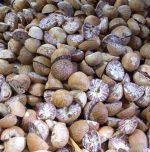Effective diet & lifestyle tips to manage uterine fibroids

Uterine fibroids, commonly known as benign tumours or myomas, affect a significant number of women, with estimates suggesting that up to 80% may develop fibroids by age 50.
While these growths are generally non-cancerous, they can lead to discomfort and other health issues.
Understanding the risk factors and adopting specific dietary and lifestyle changes can help manage and possibly prevent fibroids.
Factors that increase the likelihood of developing fibroids include age (particularly between 30 and 50), obesity, racial genetics, and early menstruation.
In addition, dietary deficiencies and high blood pressure also increase the risk of developing fibroids.
Notably, excess weight plays a crucial role because fat cells produce high levels of estrogen, which may promote fibroid growth. Consequently, managing weight through diet and exercise is crucial.
Dietary adjustments are vital in treating and preventing fibroids. Foods high in refined sugars and carbohydrates, such as white pasta, soda, and baked goods, should be limited.
These foods can spike blood sugar levels, leading to increased insulin production and potentially exacerbating fibroid conditions.
Instead, a focus on fibre-rich, whole foods like fruits, vegetables, whole grains, and legumes is recommended. These foods help balance hormones, reduce inflammation, and prevent excessive weight gain.
Moreover, incorporating milk and other dairy products may be beneficial. Dairy contains essential minerals like calcium, magnesium, and phosphorus, which might help in reducing fibroid growth.
Also, ensuring adequate intake of vitamins D and A is important, as deficiencies in these nutrients have been linked to higher fibroid risk.
Besides dietary changes, managing stress through at-home care such as warm compresses, yoga, and regular exercise can significantly alleviate fibroid symptoms and improve overall well-being.
Vitamin supplementation, including B vitamins, vitamin E, magnesium, and omega-3 fatty acids, may also help ease menstrual pain and bloating associated with fibroids.
Before making any significant changes or starting supplements, consulting with a healthcare provider is essential.
They can offer guidance based on individual health needs and the severity of the fibroids.
By combining dietary strategies, lifestyle changes, and professional medical advice, women can effectively manage fibroid symptoms and improve their quality of life.
Image by Serghii Kamforovych from Pxhere (Free for commercial use / CC0 Public Domain)
Image Reference: https://pxhere.com/en/photo/1447035









Leave a Reply